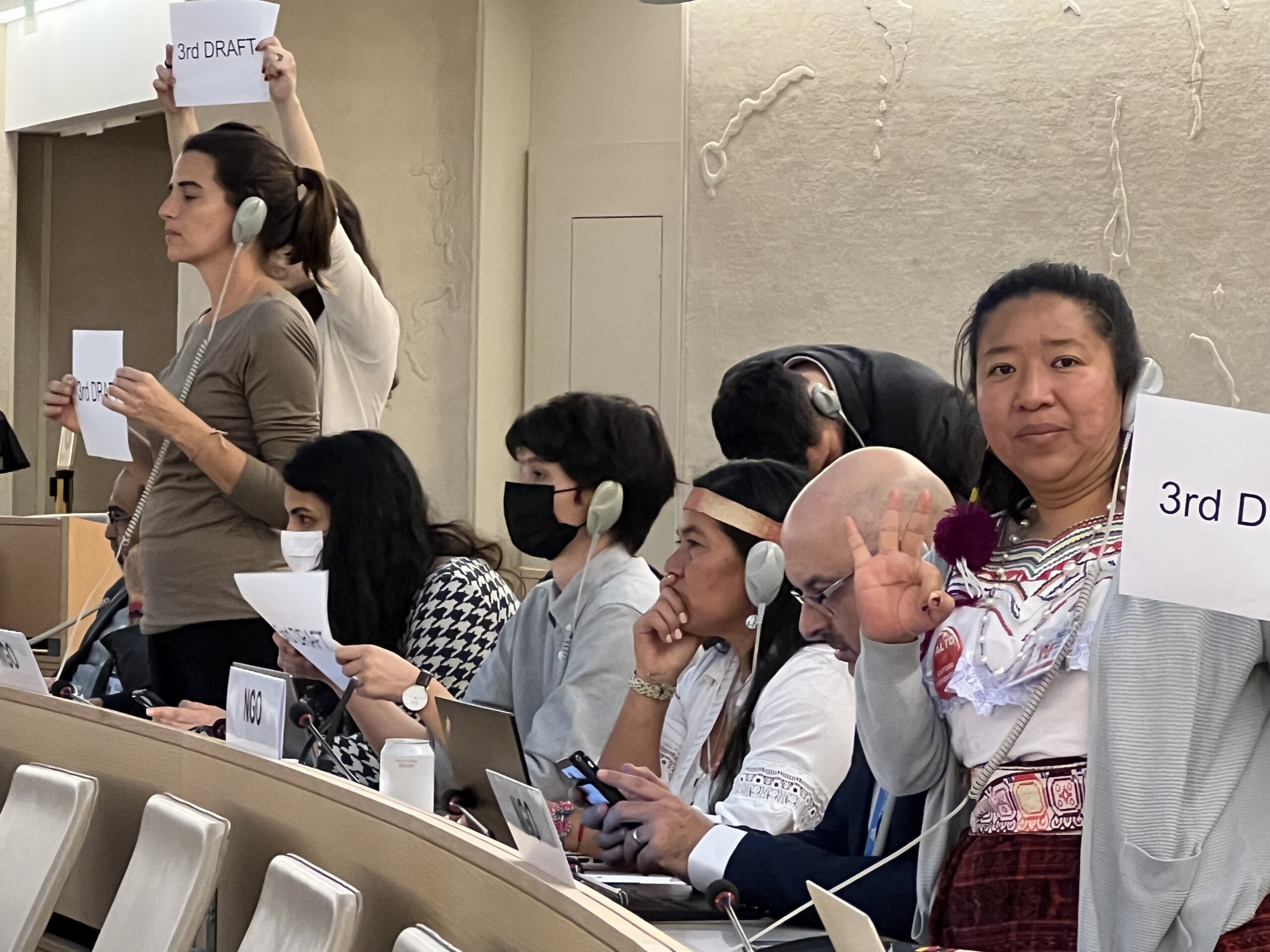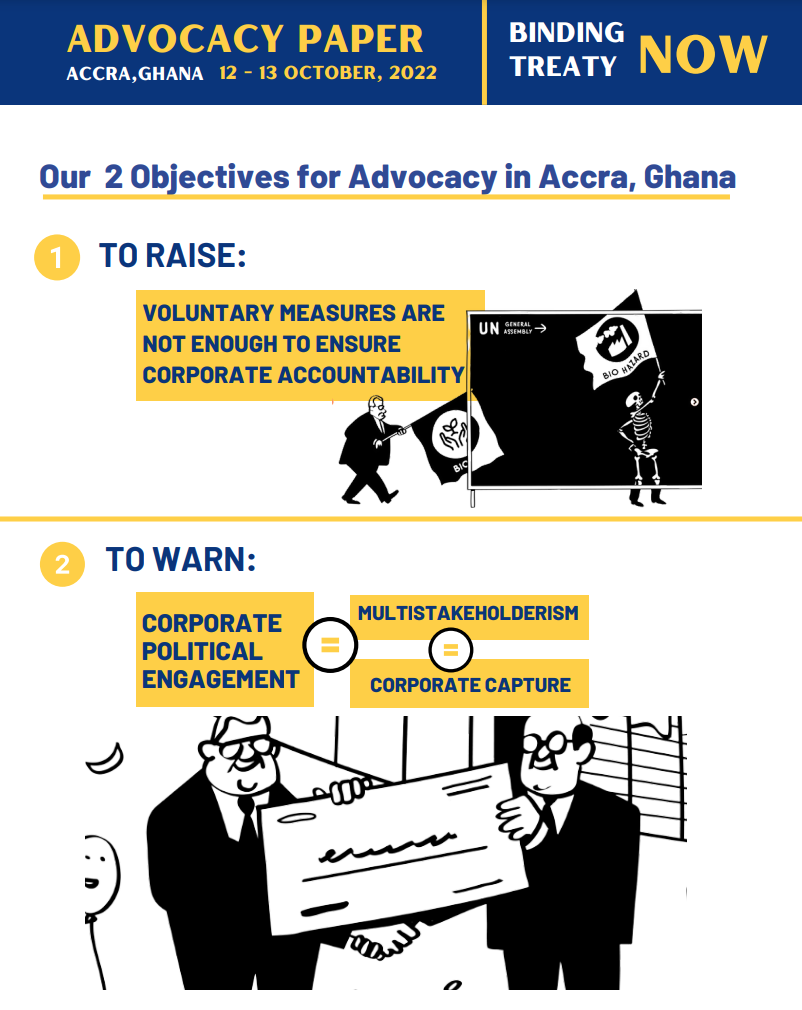For over a decade, social movements and civil society around the world united in ESCR-Net and other allies networks such as the Feminists for the Binding Treaty, the Treaty Alliance, and the Global Campaign to Dismantle Corporate Power, have mobilized regionally and internationally to advance a treaty that includes the demands of people and communities affected by corporate power.
What’s the Legally Binding Instrument?
- It’s an international binding human rights instrument in the making – also referred to as a draft treaty – to help stop human rights and environmental abuses and violations caused by businesses. It also aims to develop access to justice by individuals and communities facing business-related abuses and violations such as land grabbing, risking lives, destruction of natural resources, and slave-like working conditions.
- It is a long-standing demand of civil society and communities! Because of their economic predominance and growing influence on government decision-making, corporate elites, especially transnational corporations (TNCs), often escape accountability. This existing state of impunity led social movements and civil society organizations around the world to seek legal liability for corporate acts and omissions and ensure robust international legislation is in place to protect people’s rights over economic interests and corporate power.
As a result of this global push to end corporate impunity, in 2014 the UN Human Rights Council passed Resolution 26/9, which established an open-ended intergovernmental working group (IGWG) with a mandate to develop an international legally binding human rights treaty to regulate the activities of transnational corporations and other business enterprises.
Voluntary measures are not enough. How a binding treaty can stop corporate impunity:
- Ensuring that individuals and communities affected by business activities – including Indigenous Peoples, human rights and environmental defenders – have effective mechanisms to access justice and reparations where abuses and violations occur.
- Establishing the primacy of human rights over trade and investment agreements.
- Establishing a strong standard of legal liability for acts or omissions carried out by TNCs and other large enterprises.
What has been the position of States on the treaty?
The treaty process has been ongoing for 8 years. However, not enough States have dedicated proper resources to advance it. While several countries supported the establishment of the process, other countries -the majority of the Global North- voted against it. Several States in the Global North are prioritizing corporate interests that would undermine the very purposes of the treaty process. Moreover, as hundreds of social movements and organizations have repeatedly denounced, the treaty process is threatened by corporate capture, often by including corporate lobbyists and associations in the negotiations, who present faulty and biased arguments to weaken the text and the process.
Why should Global South countries champion the treaty process?
Several States in the Global North are prioritizing corporate interests that would undermine the treaty process’s purposes.
On the other hand, hundreds of social movements and organizations united in the International Network for Economic, Social and Cultural Rights (ESCR-Net) and other ally Networks like the Feminists for the Binding Treaty, the Treaty Alliance, and the Global Campaign to Dismantle Corporate Power have repeatedly denounced that the treaty process is threatened by corporate capture, often through the inclusion of corporate lobbyists and associations in the negotiations, who present faulty and biased arguments for why this binding instrument should not advance to implementation with strong legal liability provisions.
People and the planet cannot wait any longer. The Global South can champion the process to strengthen it and put forward the demands of people and communities affected by corporate power.

